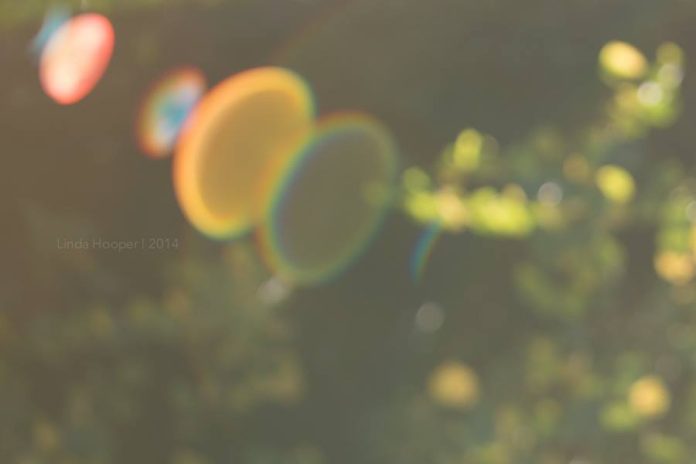I am in the middle of my second breast cancer scare. Last year at this time, I was going through numerous tests, mammograms, ultrasounds, and visits to specialists. There were the phone calls, “Well we didn’t find anything, but we want you to get another test.” There was the waiting. There was my heart that races the speed of a marathon runner whenever I enter a doctor’s office. Again, there was the waiting.
In the midst of all of that, and again today, I think about dying. Mostly I think about my husband. What will our bed look like if I no longer take the right half? He jokingly asks me often, “What do you do while you sleep to get the bedcovers to look like that? It’s a mess. They are all twisted.” If I die, will he wake to a bed that only needs a little adjusting to be perfectly made?
The hole that either of our absences would leave in this house is like a crater – it couldn’t be walked around, it couldn’t be ignored, it would be unavoidable, and all consuming. The edges would be where the rest of our life was hanging, hanging over an opening that would threaten to swallow the one left behind. Swallow? How would either of us eat again after sharing all our dinners at the little table built for two?
I told my husband yesterday, that if I have cancer, and I am dying, that it isn’t all bad. “I want to die before you,” I said. “What?” He asked. “That is so selfish. Okay, you can die before me, but not now. Not this young. I want to retire. I want to go places. I have plans. No, you can’t die this young. Not now.”
I take a deep breath. I tell him about a poem I read by Jack Gilbert, titled, Marriage. The narrator returns from his wife’s funeral and searches for her hair. He later gives up searching after other dark haired women have visited his home. A year later, as he is replanting an avocado, he finds a long dark hair in the dirt.
My husband says he doesn’t know what he would do if I died. I said, “Let’s hope it happens in a way that we have some warning and I can help you. I can help you plan out what you will do.” He said, “I might go through the house and take everything of yours to Goodwill. I might move right away. Then again, I might keep everything that belongs to you. I might stack up all the clothes you have worn and sleep on them.” I told him, “Experts say it is best not to make big decisions for two years after a severe loss.” Under his breath, and wearily he says, “I just don’t know what I would do.”
My husband hates talking about death, but I bring it up frequently. It seems to loom in our lives, both his and mine. I hate keeping it as a shadow that follows us on sunny days. I want it out in the open. I want to take some of the darkness out of it. I want to wring the power from it so it doesn’t have a hold on our lives. It does have a hold though.
We are nearly inseparable my husband and I. We aren’t a couple with lots of friends and a booked up social life. We do things together. We have no children. We live far away from most of our family. We consider each other the loves of our life. He is mine. I am his. The loss to one of us if the other one dies will be devastating. I try to lessen the trauma by preparing him.
I am waiting by the phone. If the doctor calls and says I need more tests my husband will be the first person I call. When we see each other, we will embrace with all of our strength. We will hold each other up. Later, while we are holding each other in bed, I will ask him questions. “Do you think it is cancer?” As always he will say, “No.” “Will you tie a bandana on my head every morning if I lose my hair?” “Yes, every morning,” he says. “Every morning,” I repeat. We try to reassure each other that the house won’t cave in on him any time soon. I put my head on his chest and listen to his heart. I fall asleep with the rhythmic pounding. Tomorrow the bed will be a mess on the right side. That is all we know for sure.
Rebecca Chamaa has been published in Transition, Pearl, Serving House Journal, Structo Magazine, City Works, Voice Walks, and several anthologies. She is currently working on a memoir about living with schizophrenia.



To get into your words and stories? Join Jen Pastiloff and best-selling author Lidia Yuknavitch over Labor Day weekend 2015 for their 2nd Writing & The Body Retreat in Ojai, California following their last one, which sold out in 48 hours. You do NOT have to be a writer or a yogi.
“So I’ve finally figured out how to describe Jen Pastiloff’s Writing and the Body yoga retreat with Lidia Yuknavitch. It’s story-letting, like blood-letting but more medically accurate: Bleed out the stories that hold you down, get held in the telling by a roomful of amazing women whose stories gut you, guide you. Move them through your body with poses, music, Jen’s booming voice, Lidia’s literary I’m-not-sorry. Write renewed, truthful. Float-stumble home. Keep writing.” ~ Pema Rocker, attendee of Writing & The Body Feb 2015
Featured image courtesy of Linda Hooper.

